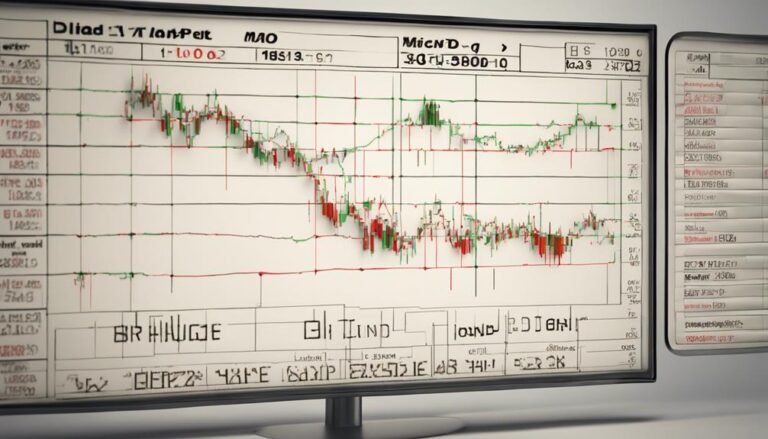Efficient Market Hypothesis (EMH): Definition and Critique
The Efficient Market Hypothesis (EMH) suggests that asset prices reflect all available information, making it difficult to consistently beat the market through active trading. Critics argue that active management can outperform passive strategies, with behavioral biases causing market anomalies. Challenges like information asymmetries and sudden events can disrupt pricing mechanisms, casting doubt on the full efficiency of markets. The ongoing debate around EMH's validity highlights the complexity of market dynamics. Understanding these debates is essential for investors aiming for best returns.
Key Takeaways
- EMH posits that stock prices reflect all available information.
- Challenges to EMH include active management outperformance.
- Behavioral biases can lead to market anomalies.
- Market anomalies suggest inefficiencies in price reflection.
- Ongoing debate questions EMH validity in explaining market dynamics.
EMH Overview and Core Tenets
Efficient Market Hypothesis (EMH) is a foundational theory in finance that posits stock prices reflect all available information and trade at their fair value on exchanges. This concept has significant implications for investors, suggesting that it is challenging to consistently outperform the market through active trading strategies.
Market anomalies, such as price discrepancies or irregularities, are seen as temporary deviations from the efficient market pricing, which may present opportunities for profit. However, EMH proponents argue that these anomalies are quickly corrected as the market incorporates new information.
Despite the existence of market anomalies, the EMH remains a widely debated theory in financial markets, with ongoing research and evidence both supporting and challenging its validity.
Critiques of EMH
Despite the widespread acceptance of the Efficient Market Hypothesis (EMH) in financial theory, various critiques have emerged challenging its assumptions and implications. Investor strategies are often at odds with the EMH, as some argue that active management can outperform passive strategies, contradicting the theory's stance on market efficiency.
Behavioral biases, such as overconfidence and herding behavior, can lead to market anomalies that deviate from the EMH's predictions of informational efficiency. These anomalies suggest that markets may not always accurately reflect available information, casting doubts on the EMH's core premise.
The presence of market anomalies and the limitations of informational efficiency highlight the ongoing debate surrounding the validity of the EMH in explaining real-world market dynamics.
Market Efficiency Challenges
Market efficiency faces persistent challenges due to the presence of market anomalies and behavioral biases that impact the accurate reflection of available information in asset prices. Information asymmetries contribute to inefficiencies, as some market participants possess privileged information, leading to mispricing.
Market anomalies, such as irrational investor behavior or sudden events, can also disrupt efficient pricing mechanisms. These challenges undermine the assumption that prices fully reflect available information, casting doubt on the significance of the Efficient Market Hypothesis (EMH) in all its forms.
Addressing these issues is vital for investors aiming to navigate and potentially exploit market inefficiencies for superior returns.
EMH Validity Debate
The ongoing discourse surrounding the validity of the Efficient Market Hypothesis (EMH) persists among scholars, practitioners, and investors alike. The efficiency debate revolves around the concept that markets accurately reflect all available information, leading to prices trading at their fair value.
However, critics point to market anomalies as evidence of inefficiencies, where stock prices deviate from their intrinsic values. These anomalies challenge the notion of market efficiency proposed by the EMH, indicating that opportunities for outsized returns may exist beyond what the theory suggests.
The presence of market anomalies raises questions about the completeness of information incorporation into asset prices, prompting ongoing scrutiny and debate within the financial community.
Implications for Investors
As investors navigate the complexities of market efficiency and the ongoing debate surrounding the Efficient Market Hypothesis (EMH), understanding the implications for their investment strategies becomes paramount. Investor strategies are greatly influenced by the EMH, with proponents advocating for passive, low-cost portfolio construction to match market returns efficiently.
Active management strategies, aiming to outperform the market, face challenges due to the hypothesis suggesting that stock prices reflect all available information accurately. Portfolio construction choices, such as investing in index funds or ETFs, align with the EMH principles of market efficiency.
While some investors and portfolio managers have shown consistent outperformance, the debate over the validity of EMH continues to shape investment approaches and decisions in financial markets.
Conclusion
To sum up, the Efficient Market Hypothesis (EMH) remains a cornerstone theory in finance, asserting that stock prices reflect all available information. Despite criticisms and challenges to its assumptions, EMH prompts valuable discussions on market efficiency and investment strategies.
One anticipated objection is the presence of anomalies and inefficiencies in the market, which some argue can be exploited for superior returns. Understanding the nuances of EMH is crucial for investors dealing with the complexities of financial markets.







